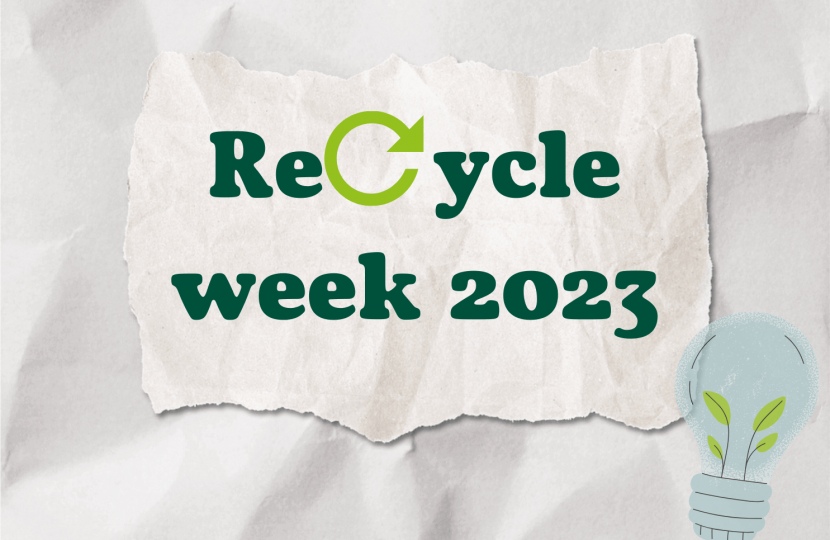
Paul Howell MP is very pleased to be supporting National Recycling Week.
Paul has been working hard with her Ministerial colleagues and fellow MPs to increase recycling and awareness of the consequences of not doing so. We are pleased to announced that some of the most polluting single-use plastic items have been banned from 1st October.
This means, no business – whether retailer, takeaway, food vendor or part of the hospitality industry – will now be able to sell single-use plastic cutlery, balloon sticks nor polystyrene cups and food containers in England. The supply of single-use plastic plates, trays and bowls has also been restricted. The new regulations were announced in January and extensive work has taken place throughout 2023 to provide further guidance on the ban for businesses.
The Government has engaged closely with industry to support them in getting ready for the new requirements, including by giving them nine months from the publication of its response to the consultation on the ban to prepare and use up excess stock.
Plastic pollution takes hundreds of years to break down and inflicts serious damage on our ocean, rivers and land. It is also a source of greenhouse gas emissions, from its production and manufacture to the way it is disposed.
This is also why a new consultation has recently been announced to ban wet wipes with plastic. Alternatives to wet wipes containing plastic are already available, with a number of major brands removing plastic from wet wipes. Boots, Tesco and Aldi are amongst major retailers who have stopped selling wet wipes containing plastic. The ban would build on this action from retailers to make only plastic-free wet wipes available to consumers.
This year, the Government have also introduced a new programme to drive better reuse of resources and increase recycling - wide-ranging projects across 7 key sectors of the economy to boost better design and reuse of resources whilst creating jobs and growing the economy. The programme, called ‘Maximising Resources, Minimising Waste’ brings together a range of measures backed by government funding which will help to keep products and materials in circulation for as long as possible and at their highest value, including through increasing reuse, repair and remanufacture, helping to grow the economy and boost employment.
Meanwhile the Government's single-use plastic carrier charge has successfully cut usage by more than 97% in main supermarkets.
The government remains committed to delivering on its commitments to eliminating avoidable waste by 2050 and recycle 65% of municipal waste by 2035. Most recent statistics show 9.5 million tonnes of food and drink, after the farm gate, are wasted annually in the UK. This is worth around £19 billion.

